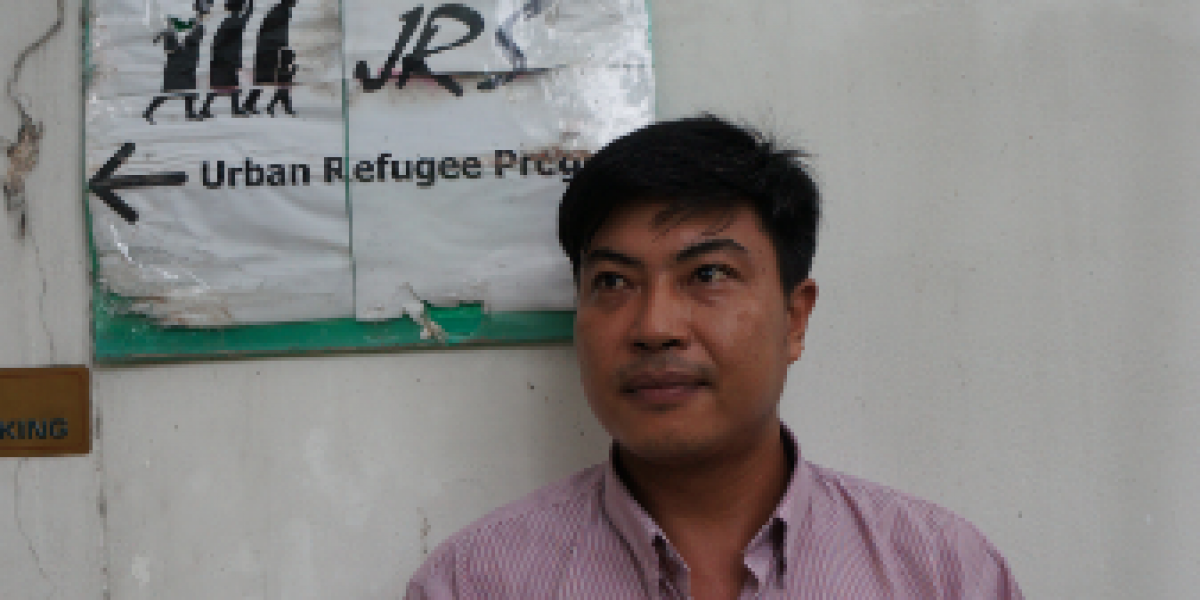Thailand- Access to Education in rural villages and in Bangkok
03 July 2015|Nick Jones

Bangkok, 3 July 2015 – From a village with almost no electricity to the bright, flashing lights of the Thai capital Kyi Thar is filled with hopeful energy. When he left his small village in Myanmar years ago little did he realize he would end up living in Bangkok.
.
“No one in my village expects a call from abroad, so when JRS called I jumped at the opportunity”, Kyi Thar said.
.
An inspiring force for JRS to have, his educational principles are firmly rooted in his past. As a boy, he was twice shut of out schools due to lack of funding and when he moved to access an education Myanmar’s migration policy, a policy limiting freedom of movement through family registration to certain areas, further hampered his options. Despite all the obstacles he faced he pounced around all of them with boundless energy and graduated with a B.A. in English and a PGD in Social Work.
.
His eternal optimism has his focus on the plight of urban refugees, previously working with migrant children in education. The current education practices with refugees in Bangkok and in the rural areas have left many refugees we serve unable to access an education system suitable for their children.
.
The rural barriers to education are two-fold, cultural and financial. The issue is closely tied to the cultural value placed on education within the respective community. Parents, typically uneducated, do not see the investment value in education as they have not seen its value themselves. The physical, not mental, stature of the child is considered more important as they can be sent to work to earn money when hitting the tender ages of 12-13 years old.
.
The cost of sending children to school, particularly transportation costs, is considered too high to parents. Kyi Thar explains “The transport costs for 3 children may be close to 1,000 Baht a month, but this is considered too expensive so the children are not sent to school”.
.
In urban areas isolation, restrictive government policies and resource constraints all take on increased significance. Thailand is not a signatory of the 1951 Convention. Parents are in fear of arrest if they escort their child to school so the risk to the parent and the family unit as a whole is deemed too high. Combine that with an unfriendly atmosphere toward refugees in Bangkok and accompaniment is the riskiest practice for parents.
.
“Many of my clients come to me saying they must stay behind closed doors for six days a week leaving little for opportunity for education.” Kyi Thar continues, “I can relate to this as my own education had far too many barriers, but without a formal educational structure refugees will find it extremely difficult to build self-reliance or an opportunity to access a sustainable livelihood”.
.
Integration of rural and urban refugee communities into a host country’s education system face identity issues that both communities are timid to face. Rural migrants argue they will repatriate while asylum seekers in Bangkok assume resettlement elsewhere would render the lingual skills learned useless. However, motivation to learn the language is a sign of accepting hospitality from a new community and should be a bridge to integration. It is practical to know some of the language as a way to create a relationship and get to know the local community in a friendly and better way.
.
Education is the key because it furthers integration in every society and helps human beings to become more constructive and active members of society. We have considered education to be a form of protection for refugees since our education programs were first launched. Our focus on access to education continues as we support education programmes along the Thai/Myanmar border and we will continue to support education programmes established in Bangkok.
.
By Nick Jones in Bangkok, Thailand
*If you think encouraging this group and others like it is worthwhile and would like to join JRS in this important work, please consider sending messages of support, donating through our website and/or circulating this article to people you think might like to do the same.
*If you think encouraging this group and others like it is worthwhile and would like to join JRS in this important work, please consider sending messages of support, donating through our website and/or circulating this article to people you think might like to do the same.


